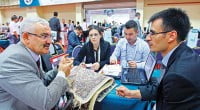“1915” by Prof. Ihsan Yilmaz (1)

Date posted: April 24, 2013
İHSAN YILMAZ
The major issue with regard to the nascent Armenian nationalism in the mid-19th century was the lack of a majority or even plurality of Armenians in the Ottoman cities.
Thus, some Armenian gangs began attacking Muslim villages. They were not only trying to expel the Muslim population from these areas but were also trying to attract the attention of international powers to a prospective bloody suppression by the Ottoman government, hoping that an external intervention would bring them independence.
Due to the nature of British-Russian relations, the Hamidiye Regiments’ ruthless suppression of riots did not lead to the conclusion that these Armenian gangs would have liked, but these incidents started bloody Turkish-Kurdish-Armenian enmity, violence and massacres. It must be underlined that only some of the Armenians were involved in these events, while most of them remained impartial.
I think practicing Muslims can trust what the Dutch historian Erik-Jan Zürcher wrote about 1915. Zürcher argues that the period of 1908-1950 is a Young Turk era. If practicing Muslims believe what the Young Turks could do in peace time 1938 in Dersim, they can also believe what the Young Turks could do in 1915 during the existential World War I.
Secularist Turks must also trust Zürcher, since he was presented with a Medal of High Distinction of the Ministry of Foreign Affairs of Turkey by the Kemalist President Ahmet Necdet Sezer, in one of his very rare foreign visits.
Zürcher asserts that “Armenian nationalists saw in a Russian victory their chance to achieve the establishment of an Armenian state in eastern Anatolia. A few thousand Armenians joined the Russian army; there was guerrilla activity behind the Ottoman lines. The Ottoman army started sporadic deportations in the area behind the front. The central committee of the CUP [Committee of Union and Progress] in all probability took a decision to relocate the entire Armenian population of the war zone to the Syrian Desert. An uprising by the Armenians in Van heightened the sense of urgency. By the summer of 1915 eastern and central Anatolia had been cleared of Armenians. This was followed by the deportation of the Armenians in the west. In some places, the families were given 24 hours’ notice, in others several days. In some they were allowed to sell their possessions, in others these were ‘taken into custody’ by the authorities. In some places carts and donkeys were allowed, in others everyone had to go on foot. The caravans of Armenian deportees were guarded by gendarmerie troops, who often acted very brutally. These deportations resulted in the deaths of enormous numbers of Armenians. The deportations were not limited to the war zone but took place all over the empire. Turkish historians have put the number of deaths as 200,000. Many Germans were shocked at what they saw and tried to convince the government in Berlin that it should act.”
Zürcher concludes that even if the Ottoman government as such was not involved in all these, “an inner circle within the Committee of Union and Progress wanted to ‘solve’ the Eastern Question by the extermination of the Armenians and that it used the relocation as a cloak for this policy. The fact that the records of the Teşkilât-i Mahsusa [an Ottoman imperial government special forces unit] have been destroyed and those of the CUP have been lost makes it hard to prove the exact extent of the involvement of the different persons and institutions, but it can no longer be denied that the CUP instigated a centrally controlled policy of extermination.”
One can draw parallels with the Kurdish Question here. Similar to Armenian gangs’ massacres in Muslim villages, the Kurdistan Workers’ Party (PKK) has also been engaged in terrorism against civilians and has been bombing cities, shopping malls, mosques and schools. But we all agree that all of these do not justify a state repression of all Kurds or their forced relocation, etc.
In a similar vein, yes, some Armenian gangs started it and they brutally massacred Kurds and Turks, but the Young Turks’ reaction did not aim only at countering their violence. It also unjustly targeted innocent civilian Armenians who did not take part in the violence. In one way or other, Anatolia was forcefully “cleansed” of Armenians by the CUP. And many Kurds and Turks benefited from their departure. We have to face this agonizing reality.
“1915” by Prof. Ihsan Yilmaz (2)
Source: Today’s Zaman, 24 April 2013
Tags: Armenian issue | Turkey |
























